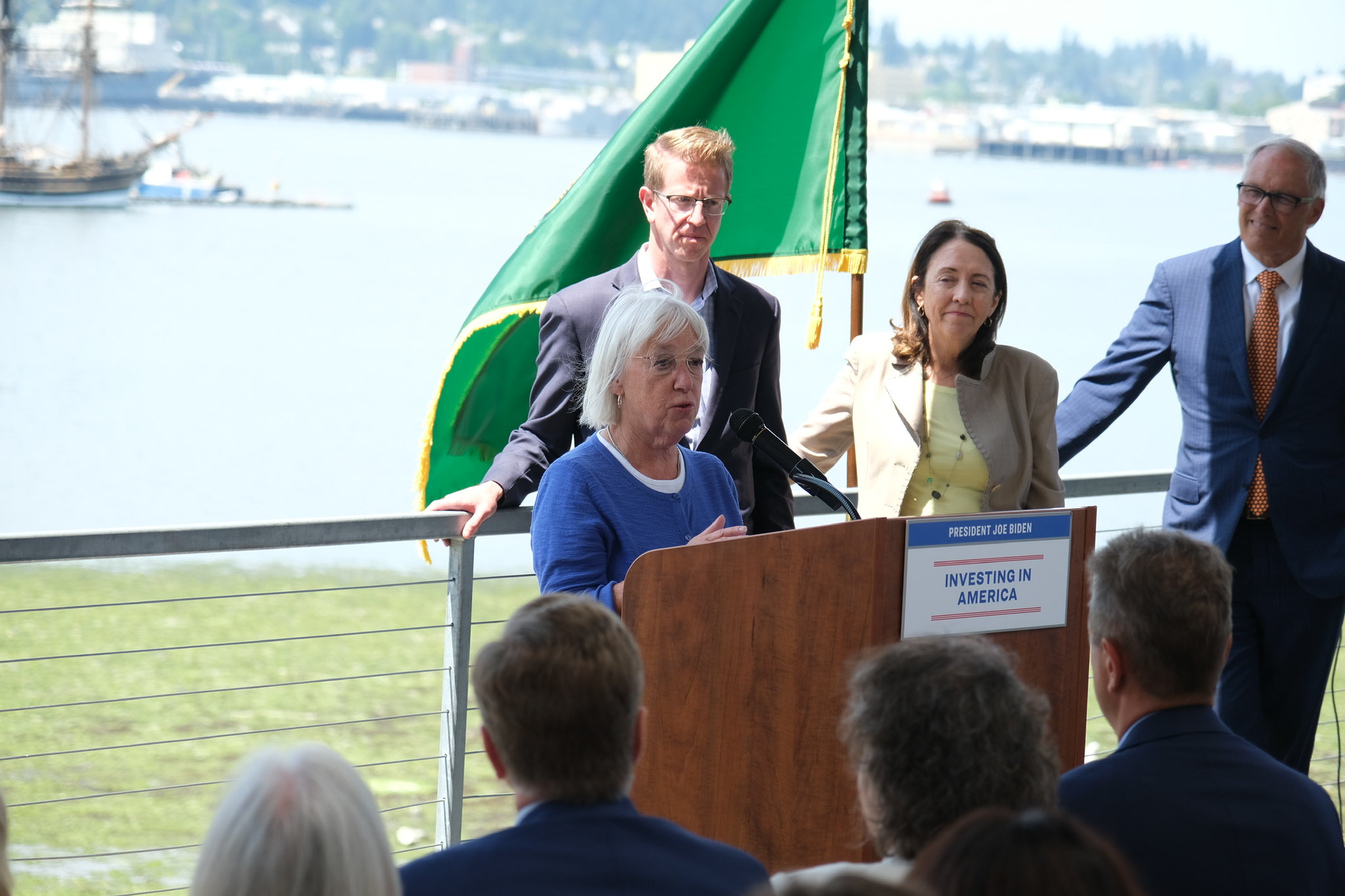Pacific Northwest Hydrogen Association was selected to become one of seven Regional Clean Hydrogen Hubs in the U.S.; Senators led PNW delegation in writing to Secretary Granholm in support of their proposal earlier this year
Regional Clean Hydrogen Hub in Pacific NW will create more than 10,000 good-paying jobs and highlight the PNW region’s ability to produce, store, and use green hydrogen to help address the climate crisis
Washington DC - Today, U.S. Senators Patty Murray (D-WA), Chair of the Senate Appropriations Committee, and Maria Cantwell (D-WA), Chair of the Senate Committee on Commerce, Science, and Transportation, announced up to $1 billion in federal funding from the Department of Energy (DOE) for the Pacific Northwest Hydrogen Association to become a “Regional Clean Hydrogen Hub” under a landmark new DOE program funded by the Ley de infraestructura bipartidista they helped author and pass. The new Regional Clean Hydrogen Hubs Program, one of the largest in DOE’s history, will be an important driver in helping communities across the country benefit from clean energy investments, good-paying jobs in the clean energy sector, and improved energy security. The Pacific Northwest Hydrogen Association was selected from over 79 project applications to become one of seven Regional Clean Hydrogen Hubs across the country.
“This is great news for the Pacific Northwest and for Washington state’s continued leadership in the transition to a stronger clean energy economy,” dijo el senador Murray. “I pushed hard to make the case to Secretary Granholm that Washington state was exactly the right home for a Regional Clean Hydrogen Hub—this monumental investment will create thousands of new clean energy jobs for folks across our state and make sure that Washington plays a leading role in growing the green hydrogen economy, which is such an important part of our efforts to tackle the climate crisis.”
“Washington has come out on top on this highly competitive billion dollar federal award because we’ve been innovating and collaborating on clean energy technology for decades,” dijo el senador Cantwell. “What makes our region an ideal place for a clean hydrogen hub is that we have pioneering researchers, talented workers, and $8 billion in financial commitments to produce, transport, and use this promising new fuel. The Pacific Northwest Hub is designed to prove that hydrogen can drive down costs and reduce emissions in aviation, maritime, and manufacturing sectors that employ thousands of Washingtonians.”
With federal support, the Pacific Northwest Hydrogen Association will be able to build out a robust network of hydrogen suppliers and off-takers in both the western and eastern parts of Washington and Oregon, as well as parts of Montana. The new Regional Clean Hydrogen Hub in the Pacific Northwest will demonstrate the region’s ability to produce, process, deliver, store, and use green hydrogen, and will also serve as a national model of how an integrated green hydrogen network can facilitate the creation of an affordable and self-sustaining green hydrogen economy. The specific parameters of the award will be negotiated between the Association and DOE over the next few months.
Hydrogen will be produced by harnessing existing clean, renewable, and abundant hydropower resources in the region, resulting in the greenest hydrogen in the nation. Clean hydrogen can support decarbonization efforts already being made in the transportation, industrial, and agricultural sectors, as well as the rapidly expanding zero-carbon aviation sector being pioneered in the Pacific Northwest.
In March, Senators Murray and Cantwell, along with other members of the Pacific Northwest’s congressional delegations, escrito a Secretary of Energy Jennifer Granholm in support of Pacific Northwest Hydrogen Association’s proposal to become a Regional Clean Hydrogen Hub. And just last week, Senator Murray hosted a roundtable with local leaders representing the Pacific Northwest Hydrogen Association to discuss her push to secure this major federal award and ensure that Washington state remains a climate leader, particularly on the nascent green hydrogen economy. Pacific Northwest Hydrogen Association’s proposal incorporates work done by regional efforts—including Maritime Blue, Washington VERTical, and the Consortium for Hydrogen and Renewably Generated E-Fuels (CHARGE)—and lays out a plan to build a complete and integrated green hydrogen technology stack across Washington, Oregon, and Montana.
The Pacific Northwest Hydrogen Association is governed by a board of directors which includes public and private sector leaders, Tribal Nations, utilities, labor, and environmental representatives, and their proposal was supported by the state governments of Washington and Oregon, which have continually demonstrated a commitment to government-to-government consultation with Tribal Nations, coordination with labor unions, and a dedication to environmental justice and community engagement during the development of large infrastructure projects.
###


